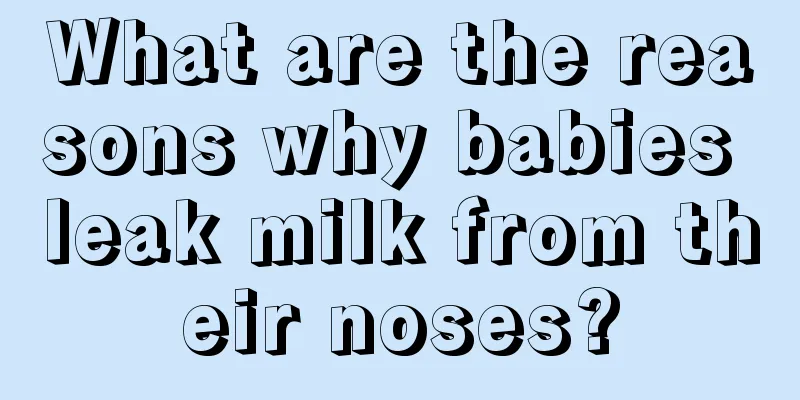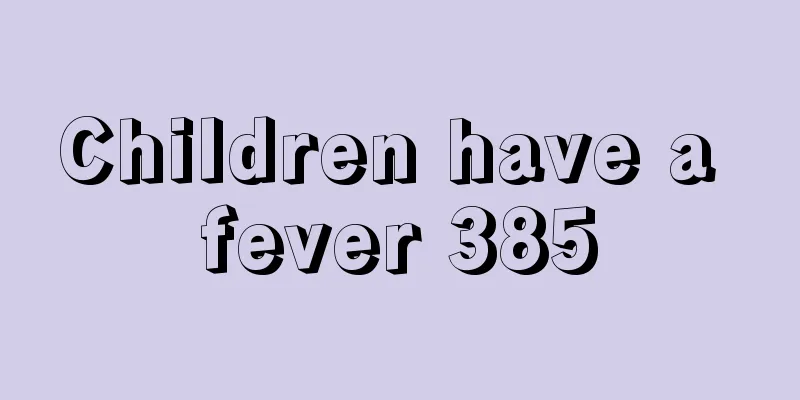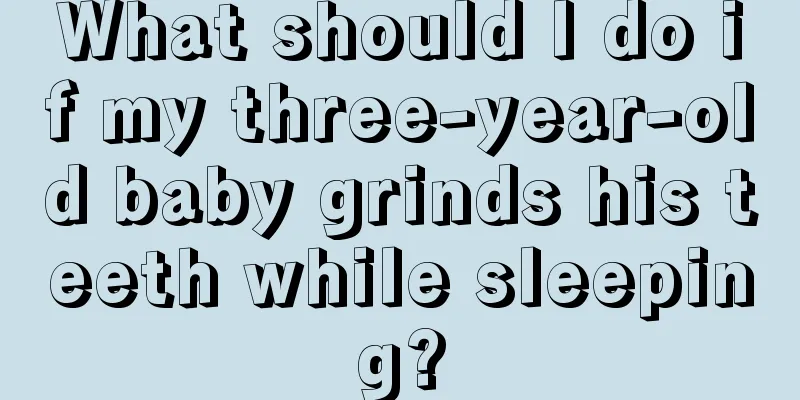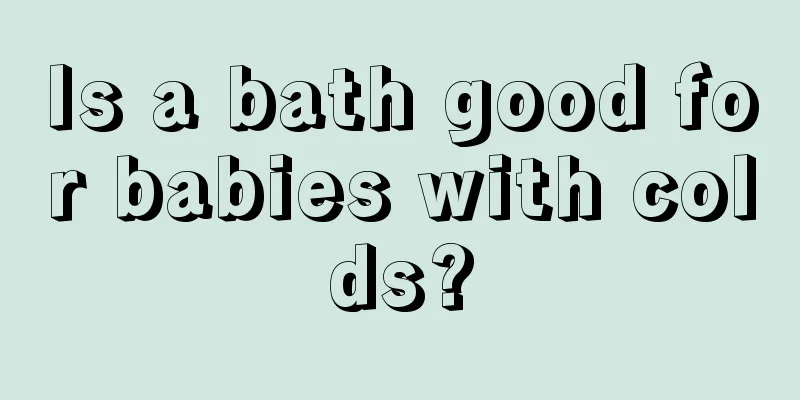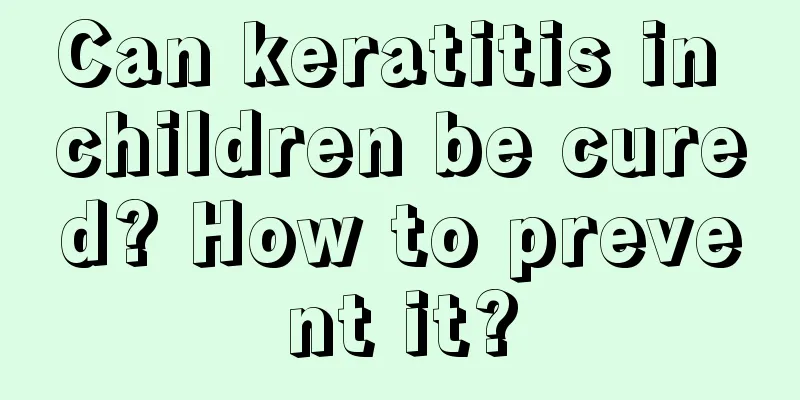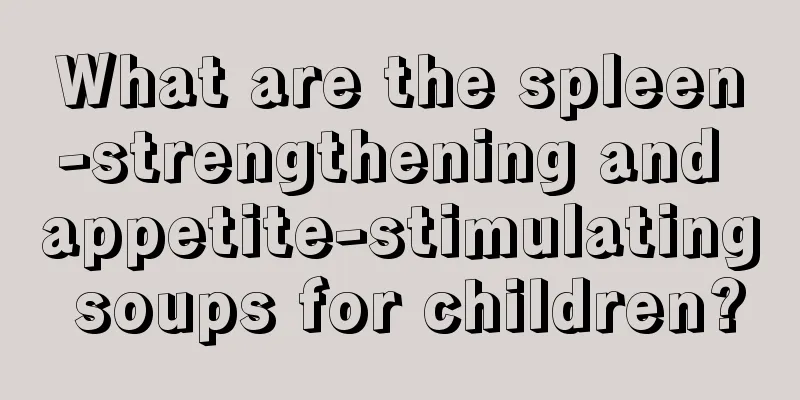What to do if your child has repeated coughs and fevers

|
Many times in the process of parenting, we will encounter some difficulties. Children will always catch colds and get sick during their growth. Children usually have fevers. Once a child has a fever, our parents will start to worry, because we all know that a child's fever has a lot of impact on the child's brain and intelligence. After this phenomenon occurs, it will also cause the child to cough. So what should we do when the child has a cough and repeated fever? Cough caused by pathological upper respiratory tract infection Symptoms: Mostly an irritating cough, like an itchy throat, without phlegm; occurring at any time of day or night, not accompanied by wheezing or shortness of breath. The baby is sleepy and has a runny nose, sometimes accompanied by fever, with the body temperature not exceeding 38℃; poor spirits and loss of appetite. After sweating and fever subside, the symptoms disappear, but the cough may continue for 3-5 days. Cough relief: When children have upper respiratory tract infection, their nasal mucosa is already inflamed. If they inhale dry air, their nasal cavity will become more uncomfortable and their cough will be aggravated. Therefore, to keep the air in the room moist, you can use a humidifier, hang a wet towel, mop the floor with water, or place a basin of clean water in the room to increase the air humidity. If your child's cough and nasal congestion symptoms persist for a week and do not improve, you should take your child to see a doctor as soon as possible. Cough caused by bronchitis Symptoms: Bronchitis usually follows a cold and is caused by a bacterial infection. The cough is accompanied by phlegm and is sometimes severe. The coughing is usually more frequent at night and there is a wheezing sound. The coughing is most severe two hours after the child falls asleep, or around 6 a.m. Cough relief: Go to the hospital for treatment and take pediatric cough suppressants prescribed by the doctor. Children should not eat foods that are too sweet or too salty, otherwise it will aggravate night coughs. Cough caused by pharyngitis Symptoms: Hoarseness, purulent sputum, little is coughed up and most is swallowed. Older babies will complain of sore throats, while babies who cannot express themselves often become irritable, refuse to feed, and make "hollow, hollow" sounds when coughing. Cough relief: In this case, parents should not solve the problem by themselves at home. They should seek medical attention in time and ask the doctor to make a clear diagnosis and provide symptomatic treatment. Allergic cough Symptoms: Continuous or recurrent severe cough, mostly in paroxysmal attacks, more obvious in the morning, coughing worse when the baby is active or crying, children tend to sneeze and cough when exposed to cold air, but with very little sputum. Coughing at night is more severe than during the day and lasts longer, usually lasting for 3 months, more often during the pollen season. Cough relief: Try to prevent your children from catching colds and go to the hospital to consult a doctor. For babies with a family history of asthma or other allergic diseases, special attention should be paid to coughing, and they should seek medical treatment as soon as possible, get a clear diagnosis, and actively treat it to prevent it from developing into asthma. The main symptoms are: generally no fever; spitting out white foamy sputum; liking to rub eyes and nose, and scratching scalp; sweating when sleeping, restlessness, and liking to sleep curled up; mostly coughing, no wheezing. There are three main characteristics of his cough: one coughs for a while at night; one coughs for a while when he wakes up in the middle of the night; and one coughs for a while when he wakes up in the morning. Some children can cough for three months in a row. Inhalation of foreign matter causes choking and coughing Symptoms: If the child has no previous symptoms such as coughing, runny nose, sneezing or fever, but suddenly develops severe choking and coughing, has difficulty breathing, and looks pale, especially for younger children, it is possible that the child put some foreign object into his mouth when the adult was not paying attention, and it accidentally entered the throat or trachea. Cough relief: After inhaling foreign objects, parents should encourage their children to cough, and never use their hands to pick around in their mouths to prevent the foreign objects from getting deeper and deeper and completely blocking the airway. If nothing is coughed up and the child coughs or wheezes repeatedly, it means that the foreign body has reached the lower respiratory tract and the child should be taken to the hospital immediately to remove the foreign body in time. Traditional Chinese Medicine Pathology. When treating children's cough and fever, you can follow the above methods to give them timely treatment, but you must pay attention. When improving the symptoms of children, you must avoid giving them medicine at every turn. This will definitely have a great impact on the child's body. It is better to use physical therapy methods to treat the fever first. Remember to let the child drink more water. You can also choose folk remedies to treat the child. |
<<: Causes of thick stools in children
>>: What should I do if my child has a fever of 39 degrees at night?
Recommend
What are the symptoms of food indigestion in children?
Because children's functions and organs are s...
Health care measures for children with interstitial pneumonia
Children's physical health is an issue that p...
What medicine should children take for diarrhea and fever
Diarrhea is a very common disease. After the onse...
Ten-month-old baby walks with crooked feet
When the baby is ten months old, he can stand on ...
Treatment of eye mucus in babies
Every life begins as a baby. I believe that for p...
What to do if children have nasal mucus
In fact, we all know that children are relatively...
Massage Methods for Children's Colds
We all know that children cannot get sick. If the...
What is adenoids hypertrophy in children
Now, families pay special attention to children, ...
What should a 6-year-old child eat when he has a fever?
Many parents feel at a loss when they find their ...
What should I do if my child has a cough and fever?
Some children have problems with coughing and fev...
What should we pay attention to when adding egg yolk to complementary food
When adding complementary foods to your baby, you...
7-year-old weight loss diet three meals a day
Losing weight has become a major goal that many p...
What is the fastest way to treat a child’s cough?
Children's physical resistance is relatively ...
How to care for allergic rash in children?
Children have fragile bodies, poor immunity, and ...
What to do if your child stutters
Stuttering is a symptom that some children will e...


